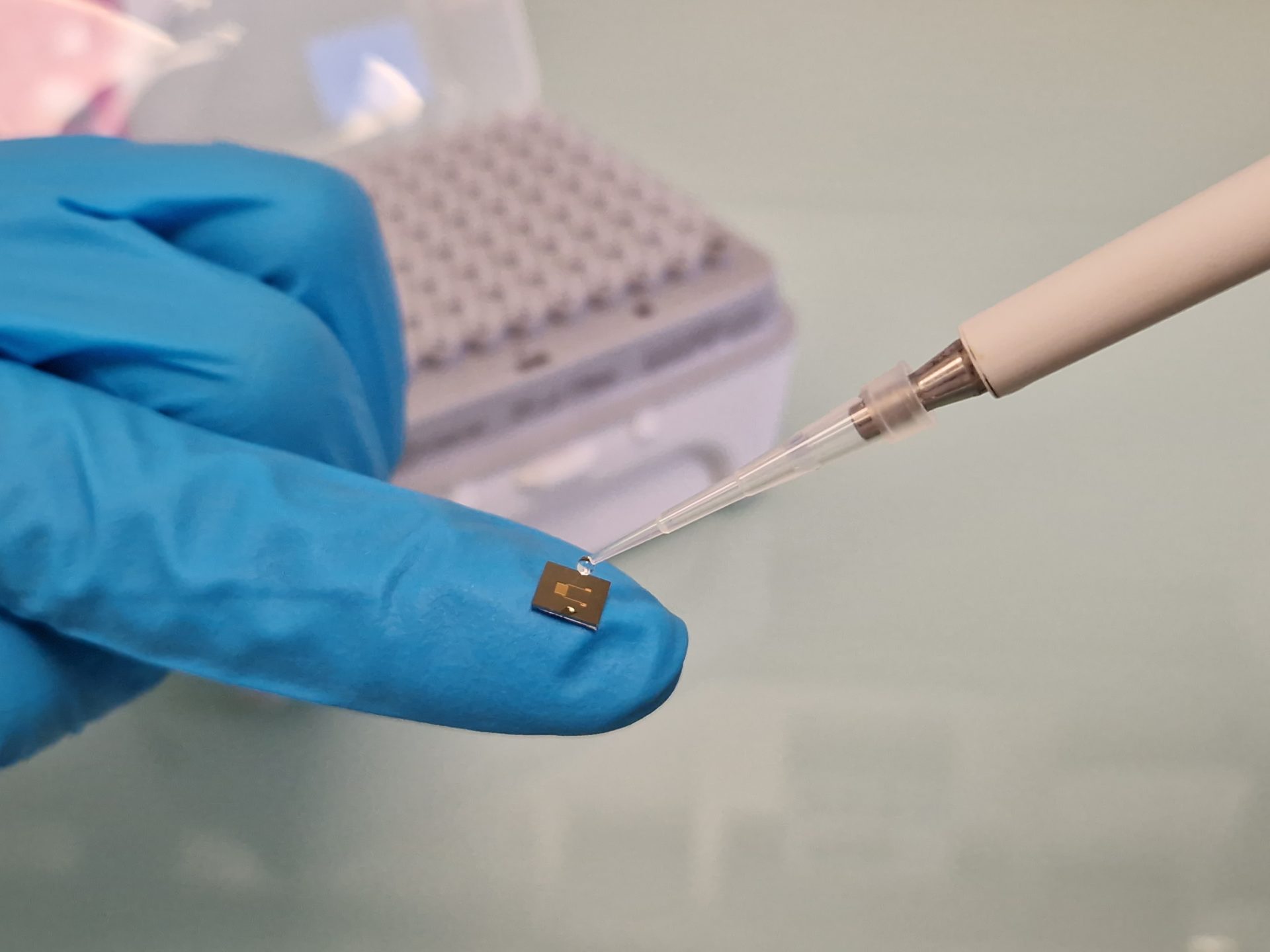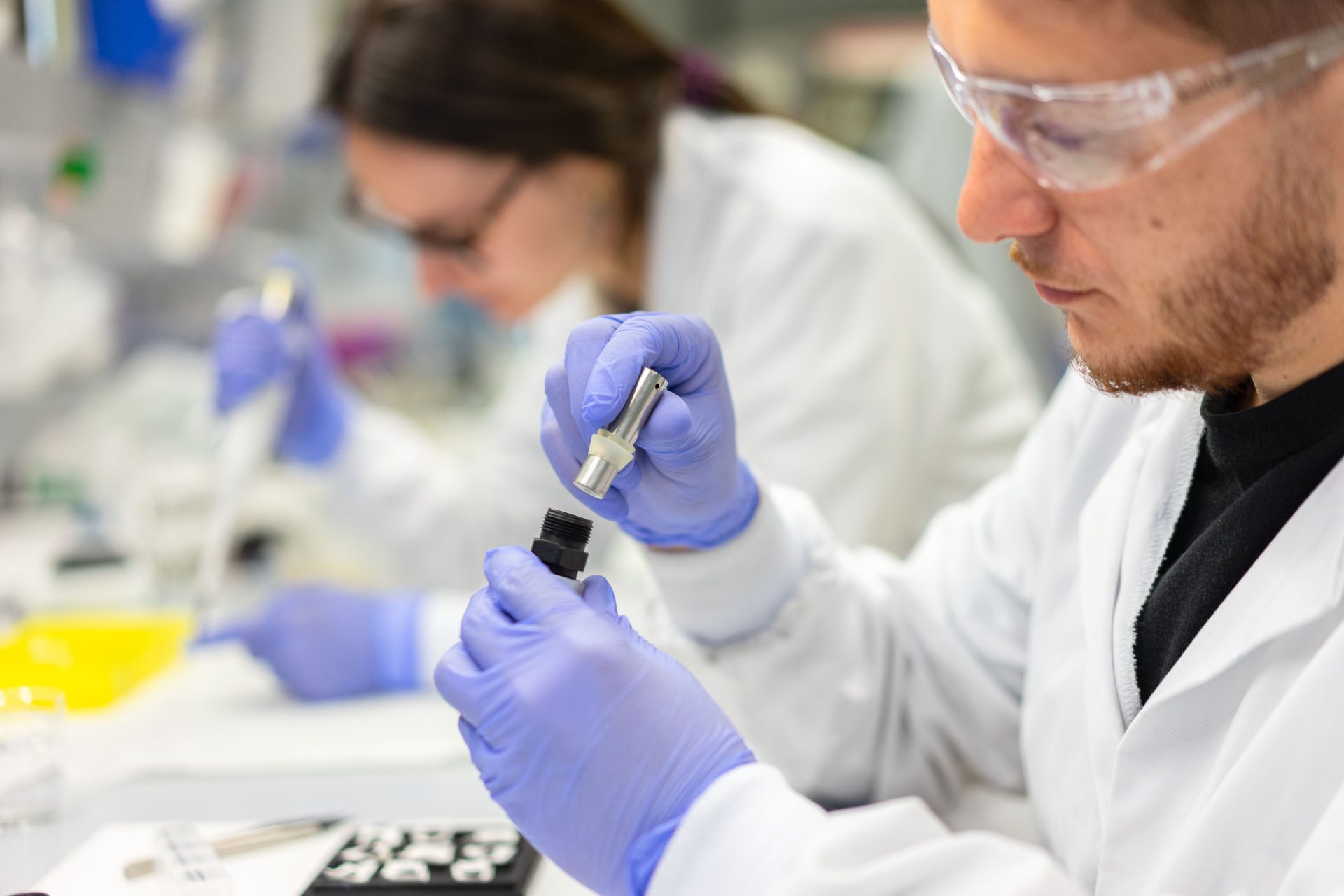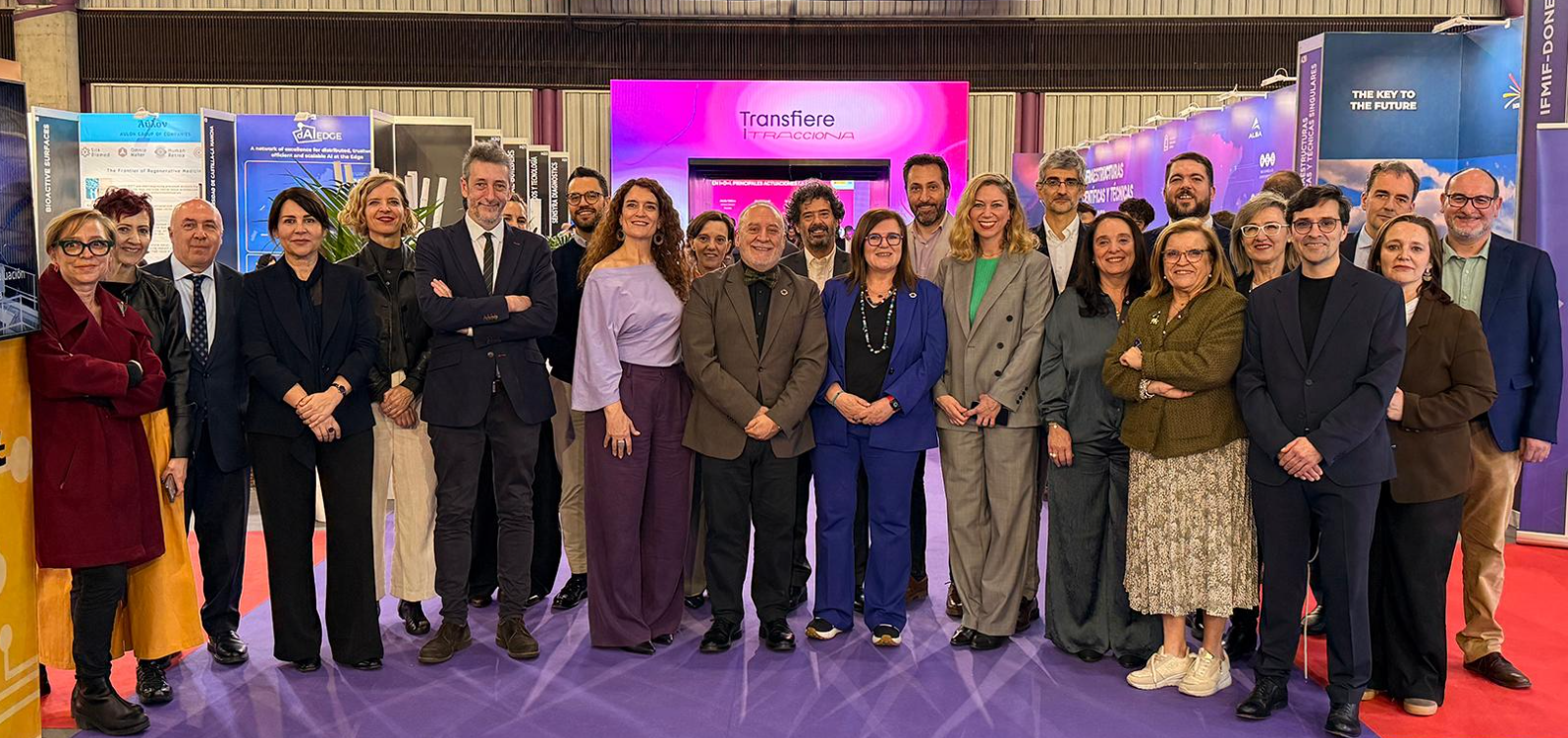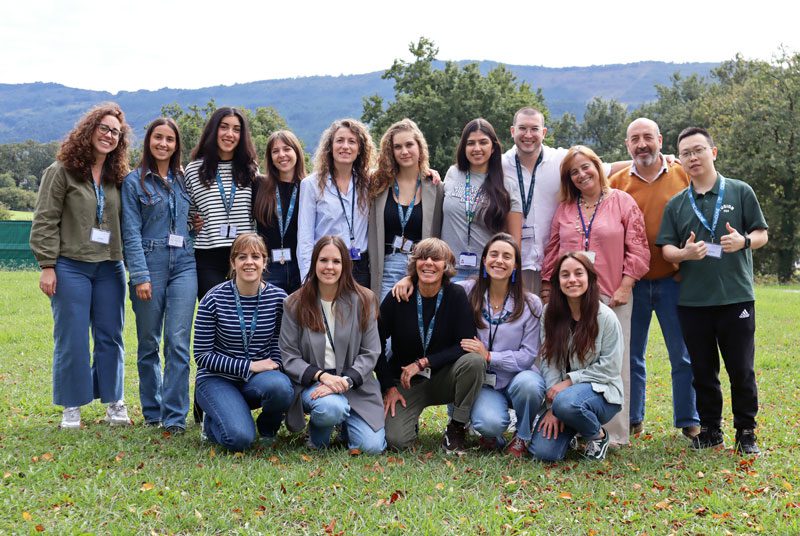
Researchers at the Basque research centres CIC biomaGUNE, BCMaterials and CIC energiGUNE have succeeded in modifying a type of protein to give it the ability to transport and store electricity
These proteins can be used to create efficient and biocompatible sustainable conductive materials. These materials are very stable and easy to process, allowing them to be integrated into industrial processes
The study led by Aitziber L. Cortajarena (Ikerbasque professor and scientific director of CIC biomaGUNE), Reyes Calvo (Ikerbasque professor at BCMaterials) and Maica Morant (senior researcher at CIC EnergiGUNE) has been published in the prestigious journal Advanced Materials, and is part of the e-PROT project, which has received funding from the European Union’s Horizon 2020 Research and Innovation Programme.

The proteins used in this work were designed in the laboratory: “They are made up of small repeating blocks that assemble one after another like LEGO pieces. Each “piece” has the same general shape, and by fitting them together one after another, a larger, orderly, stable and modular structure is built,” explain the researchers. This structure makes them very useful, as they can be given specific functions without altering their structure, making them customisable.
In this case, the research team wanted the protein to conduct electricity efficiently. To achieve this, they made genetic modifications to the DNA that contains the instructions for making the protein.
The future of energy storage devices
The changes made to the protein facilitated the movement of ions within the material, and thanks to this ionic conduction property, the proteins were successfully integrated into an efficient energy storage device capable of storing and releasing energy very quickly.
In the future, these conductive protein-based materials could replace the traditional conductive materials used in batteries and supercapacitors, making them much safer for the human body. Conductive proteins are of particular interest for the development of bioelectronic devices such as pacemakers, implantable glucose sensors, and brain electrodes used to treat diseases such as Parkinson’s.
The results of this study open the door to the next generation of energy storage devices based on sustainable, safe and inherently biocompatible materials.
It is no longer difficult to imagine a future in which energy can be stored sustainably. A world in which phones, activity trackers and other portable devices run on energy stored in biodegradable, sustainable and safe materials. Scientific research is closer than ever to making this vision a reality.




